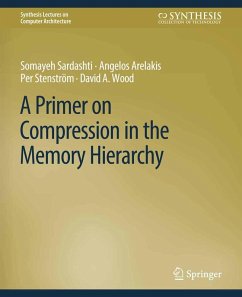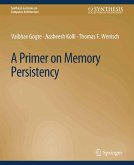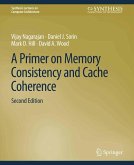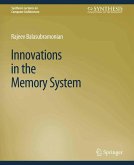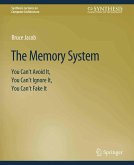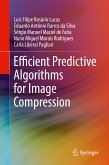Dr. Somayeh Sardashti earned her Ph.D. degree in Computer Sciences from the University of Wisconsin-Madison. Her research interests include computer systems and architecture, high performance and energy-optimized memory hierarchies, exploiting new memory, and hardware technologies for high performance database systems. She currently works in Exadata Storage Server and Database Machine group at Oracle Corporation. She was the winner of the ACM student research competition at Grace Hopper conference in 2013. She holds an M.S. in Computer Sciences from the University of Wisconsin-Madison, another Master's degree, and a B.S. in computer engineering from the University of Tehran.
Dr. Angelos Arelakis earned his Ph.D. degree in Computer Science and Engineering in 2015 from Chalmers University of Technology, Sweden. He is a researcher at Chalmers University of Technology and a co-founder of ZeroPoint Technologies Corp. His research focuses on high performance computer architecture, in particular designing cache and memory hierarchies that are efficiently utilized by today's multicore systems, data compression, and reconfigurable computing. He holds an M.Sc. degree in Computer Engineering from Delft University of Technology (Netherlands) and a 5-year Engineering Diploma in Electronics and Computer Engineering from the Technical University of Crete (Greece).
Per Stenstrom earned his Ph.D. degree in computer engineering in 1990 from Lund University, Sweden. Since 1995 has been a Professor of Computer Engineering at Chalmers University of Technology, Sweden. His research interests are devoted to high-performance computer architecture and he has made major contributions to especially high-performance memory systems. He has authored or co-authored 3 textbooks, 130 publications in international journals and conferences, and around ten patents. He is regularly serving program committees of major conferences in the computer architecture field and is an Associate Editor-in-Chief of the Journal of Parallel and Distributed Computing and a Senior Associate Editor of ACM Transactions on Architecture and Code Optimization. He co-founded the HiPEAC Network of Excellence funded by the European Commission. He has also acted as General and Program Chair for a large num-ber of conferences including the ACM/IEEE Int. Symposium on Computer Architecture, the IEEE High-Performance Computer Architecture Symposium, the IEEE International Parallel and Distributed Processing Symposium, and the ACM International Conference on Supercomputing. He is a Member-at-Large of the ACM Council, a Fellow of the ACM and the IEEE, and a member of Academia Europaea, the Royal Swedish Academy of Engineering Sciences, and the Spanish Royal Academy of Engineering.
Prof. David A. Wood is a Professor in the Computer Sciences Department at the University of Wisconsin, Madison. He also holds a courtesy appointment in the Electrical and Computer Engineering Department. Dr. Wood received a B.S. in Electrical Engineering and Computer Science (1981) and a Ph.D. in Computer Science (1990), both at the University of California, Berkeley. Dr. Wood is an ACM Fellow (2005) and IEEE Fellow (2004), received the University of Wisconsin's H.I. Romnes Faculty Fellowship (1999) and Vilas Associate (2011), and received the National Science Foundation's Presidential Young Investigator award (1991). Dr. Wood is an Associate Editor of ACM Transactions on Architecture and Compiler Optimization, serves as Past Chair of ACM SIGARCH, served as Program Committee Chairman of ASPLOS-X (2002), and has served on numerous program committees. Dr. Wood is an ACM Fellow, an IEEE Fellow, and a member of the IEEE Computer Society. Dr. Wood has published over 70 technical papers and is an inventor on thirteen U.S. and international patents, several of which have been licensed to industry.

